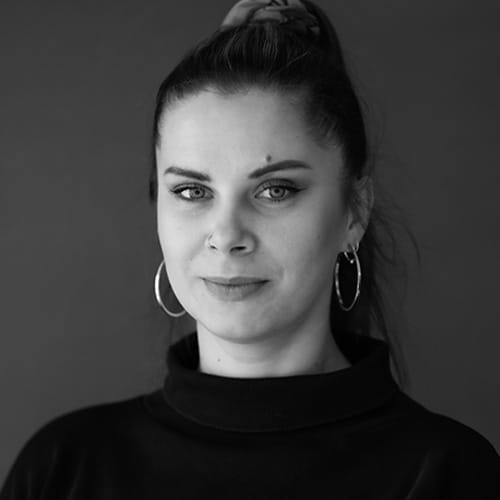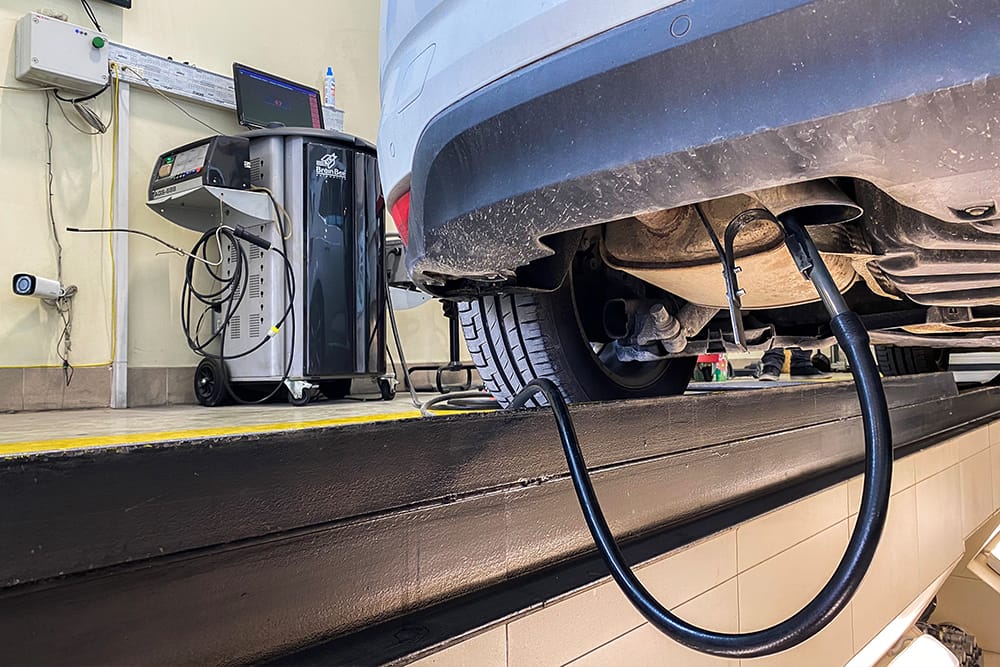Five minutes and a hundred BAM – that’s all it takes for drivers to get a roadworthiness certificate confirming the conformity of the vehicle with regulations in the Federation of Bosnia and Herzegovina (FBiH). This includes a BAM 36 vehicle exhaust gas emission testing (ECO test).
This charge is determined by the Rulebook on motor vehicle exhaust gas emission testing, which Denis Lasić, the FBiH Minister of Transport and Communications and a member of the Hrvatska demokratska zajednica (HDZ) [the Croat Democratic Union] signed in 2017, thus increasing the then cost of the test by five times.
CIN journalists revealed that by introducing the new price, Lasić circumvented the legal rules and procedures and thus enabled vehicle testing centers and private companies supervising the work of such centers to augment their profits. Among them are companies owned by members of Lasić’s party and their close associates.
The Ministry explained the adoption of the Rulebook as the need to align the regulations with the European standards for exhaust gas emissions, ensure greater traffic safety, and less air pollution. But citizens are still waiting to see the results.
“This rulebook was presented to the Government for adoption. It has been passed unanimously”, claims Lasić, although the Federation Government never discussed the document.
Due to the new price, in four years, vehicle owners in the FBiH paid at least BAM 74 million for the ECO tests, of which the largest part i.e., BAM 72.5 million ended up in the hands of private individuals. Only BAM 1.5 million have been paid to the budgets of the Entities and cantons.
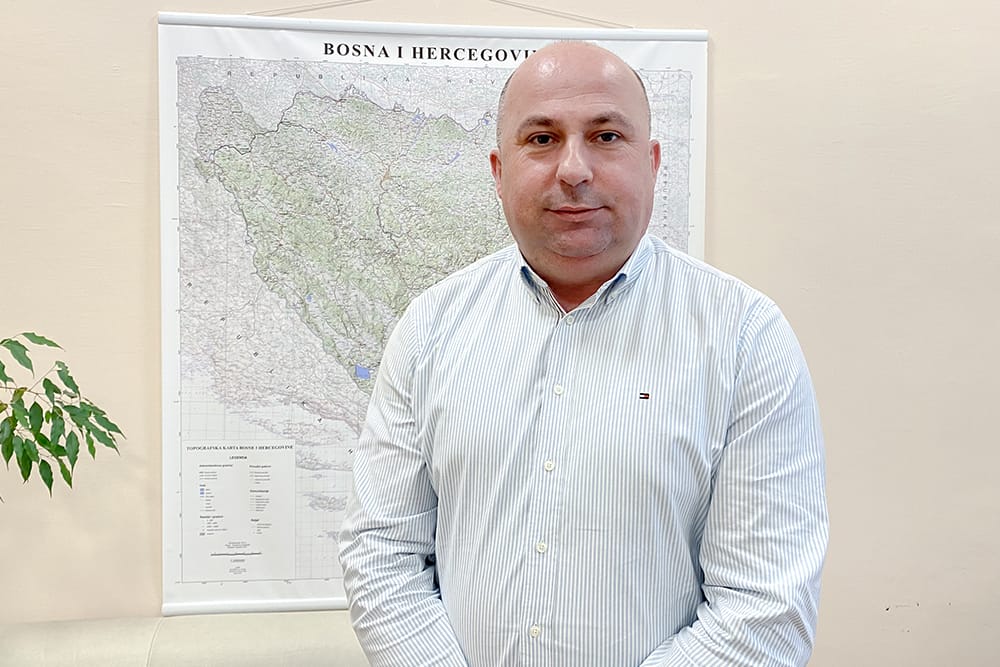
Rulebook ‘under the table’
Annual vehicle inspection and the price of these services have been regulated at the state level in 2007 by the adoption of the Rulebook on roadworthy vehicle inspection and the Rulebook on vehicle dimensions, gross vehicle weight, and axle load. According to these regulations, the ECO test charge was BAM 5. Ten years later, Minister Lasić signed a decision to increase the price of the ECO test in FBiH to BAM 22 i.e., 36. Other rules for annual vehicle inspections from the state regulations have remained the same and are still applied.
Before its adoption, the Rulebook was reviewed by the Office of the Government of FBiH for Legislation and Harmonization with European Union Regulations, which warned the FBiH administrative bodies that they may issue bylaws only when authorized to do so. Since the price had already been set by the state regulation, the Office held that the Ministry may not change it.
“Appreciating the hierarchy of legal regulations, lower-ranking acts – in this case the regulation of a FBiH administrative body – must be in line with the higher-ranking acts i.e., acts of the administrative body at the state level”, says the opinion of the Office.
Besides, the Ministry did not present any mandatory evidence of compliance of the Rulebook with European directives from 2009 and 2010. Instead of correcting the errors and returning the consolidated document to the Office for final confirmation, the Ministry decided to ignore their binding instructions. Željko Silađi, director of the Office, says that it is now too late for the Office to request that the regulation be repealed because it has already been published.
“In this particular case, such a procedure could possibly be initiated by the prime minister or one of the deputy prime ministers”, said Silađi. However, FBiH Prime Minister Fadil Novalić did not want to discuss this topic with CIN journalists.
In addition to these omissions, the Ministry failed to obtain the opinion of the FBiH Ministry of Justice (FMoJ), which it was obliged to do under the Rules of Procedure of the FBiH Government and the Law on the FBiH Government.
“Having checked the database maintained within this sector (Administration Sector, author’s note), we hereby confirm that FBiH MoJ issued no opinion on the rulebook concerned”, said the Ministry.
Regardless of these omissions, Minister Lasić signed the document and confirmed to CIN journalists that the Rulebook had been unanimously accepted at the Government session. However, the Secretariat General and the Office for Legislation claim the Rulebook “was not the subject under consideration at the FBiH Government”.
Private individuals profiting
Changed price of ECO tests brought profit to vehicle testing centers and so-called professional institutions. They share 98 percent of the money the drivers pay as ECO test charges (90 percent goes to the centers, 8 percent to professional institutions), while the rest goes to cantonal and Entity budgets.
This means that the three professional institutions are private companies: Until 2017, Institut za privredni inženjering (IPI) [the Institute for Economic Engineering], Mervik and Centar motor had been earning an average of up to one million BAM a year from vehicle inspections, and with the new prices of the ECO test, each of them earns up to half a million BAM more per year.
Since 2012, they have been supervising the work of vehicle inspection centers. Although only Mervik was selected in the public competition at the time, the Ministry decided to transfer these powers to three companies, contrary to the public competition rules stipulated by the law. Since then, the Ministry made no new public calls, thus enabling these companies to safely collect large revenues indefinitely.
“I am not aware of any other professional institutions at this level other than these three”, said Lasić in response to the question about new public competition.
IPI, Mervik, and Centar motor report to the FBiH Ministry of Transport about possible irregularities in the work of vehicle inspection centers at least twice a year. Based on their remarks, the Ministry is supposed to decide on sanctions.
“We are not the ones who can revoke someone’s permit to operate or sanction them”, says Božidar Konjevod, director of the Centar motor.
Both the Ministry and professional institutions refused to give CIN journalists reports on their work, claiming that it was the business of private companies.
The ministry is the only body that can supervise their work, but it does not do so thoroughly. Despite that, Minister Lasić claims to be satisfied with the professional institutions, which also helped in drafting the Rulebook.
However, representatives of all three companies claim they have not been consulted before the adoption of the Rulebook nor have they taken part in the pricing of the ECO test. According to the Mervik representative, they discussed the ECO test only once in the Ministry back in 2014: „In that meeting, we were merely informed that colleagues from the professional institution Centar motor will be dealing with the ECO test. We have not been given any details nor did we know what happened after that. We learned about the Rulebook from the media after it was published.”
With the Rulebook, the FBiH Ministry of Transport turned over the management of the ECO test information system to company Centar motor. The ECO test information system is a program to which the vehicle inspection centers enter data on vehicle exhaust gas emissions and the number of tests performed. Based on these data, Centar motor determines the shares of ECO test revenues to be distributed to all participants in this process: the budgets of the Entities and cantons, vehicle inspection centers, and professional institutions i.e., themselves. Only the Centar motor has an insight into the system, and the Ministry does not keep records of these data.
“Please note that we have been provided only with the amount to be invoiced to centers, not the information on the number of ECO tests performed in the previous month”, says Jasmin Šehović, director of Mervik, and the same has been confirmed by Fuad Klisura, director of IPI.
The professional institution Mervik is majority-owned by Ivan Filipović, a professor from the Faculty of Mechanical Engineering in Sarajevo, who did not want to speak on the record about this topic.
IPI is owned by Aleksandra Borozan from Mostar, and its previous owners were professors from the Faculty of Mechanical Engineering and Polytechnics in Zenica and the company A-NET owned by Faruk Smajević.
Borozan claims that IPI, as a private company, “has no say in the Ministry”.
“We have absolutely no say in any distribution and division of percentages. You can say you’ll not work or simply accept to do what you have been given to do”, said Borozan.
In 2011, Ivan Ševo was accused of abusing his position and authority as the director of the professional organization Centar za vozila, which was involved in supervising the work of vehicle inspection centers but was acquitted by the Municipal Court in Široki Brijeg. The Ševo family is also the owner of several private schools against which the State Investigation and Protection Agency (SIPA) filed a report to the BiH Prosecutor’s Office for an alleged illegal issuance of diplomas. Having checked the allegations, the Prosecution issued an order not to conduct an investigation.
At that time, the company Centar motor was represented at meetings in the Ministry by Ivan Kožul, the director and a member of HDZBiH, and Ivan Ševo, an entrepreneur. Ševo is better known to the general public in Western Herzegovina as a former employee of the Cantonal Ministry of Education, Science, Culture and Sports, where he was the right hand of Ružica Mikulić, a minister from the HDZBiH. Ivan’s brother Milan, an HDZBIH representative in the West Herzegovina Canton Assembly, is also involved in the family business. The formal owner of Centar motor is the company “Centar gradnja”, founded by their mother Mila.
Members of the Ševo family ignored all invitations to talk to CIN journalists.
From 2012 to 2015, Centar motor had been receiving the lowest percentage of revenues from the supervision of vehicle inspection centers. With the arrival of Minister Lasić from HDZBiH to the FBiH Ministry, Ševo’s company receives a higher percentage. After the appeals, the Ministry in 2017 decided on a new distribution scheme – Centar motor and IPI receive 34.5 percent each, and Mervik 31 percent of the revenue.
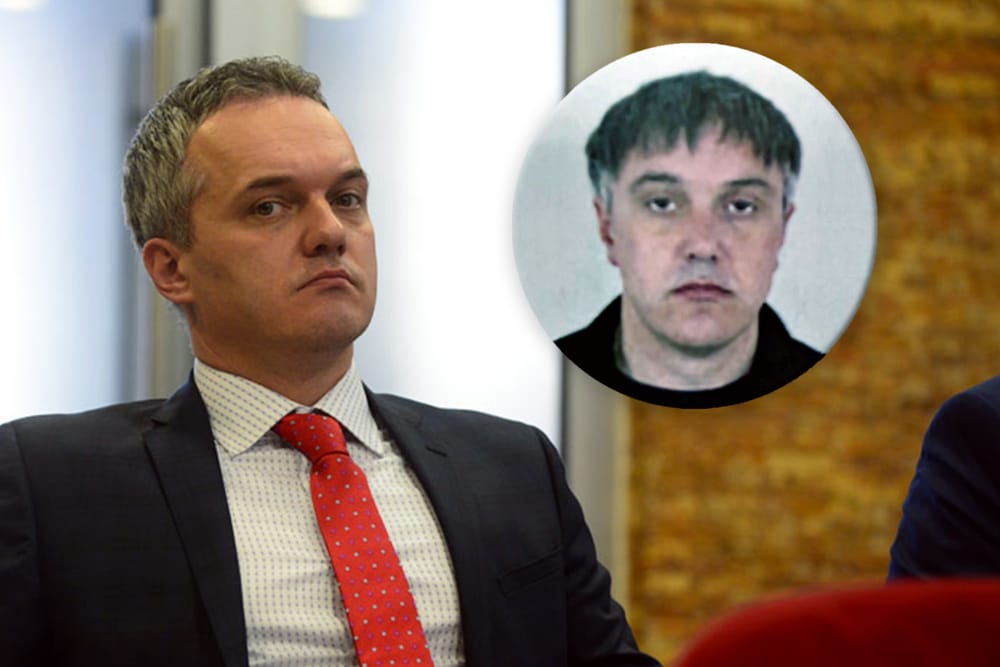
Augmenting ownership and revenue
Most of the money collected from drivers during the year is distributed to vehicle inspection centers. There are 181 centers in the FBiH and they are mostly owned by several private companies that collect millions in revenue.
In 2013, Mila Ševo bought the “Testing centar”, a vehicle inspection center. At the time of the adoption of the Rulebook in 2017, this company had 28 vehicle inspection centers. The following year, the company was acquired by a close associate of the Ševo family, Ivica Mikulić, who in 2018 sold it to company “Doter” from Široki Brijeg. Two years after that, the “Testing centar” ended up in the hands of HDZBiH member Ivan Kožul, after he left the leading position in the Centar motor. By 2020, the Testing centar increased the number of inspection centers to 35, thus becoming the owner of the most vehicle inspection centers in the FBiH, and thus of the highest revenue.
Only Centar motor has accurate data on the income of individual centers from ECO tests, but they refused to share it with CIN journalists, claiming that it was too much work for them.
In July 2021, Kožul sold the Testing centar to the company Asa Assistance, which took over the leading role and became the owner of almost 50 vehicle inspection centers across the FBiH.
Along with them, companies that collect millions of profits from ECO tests are Agram, Osing, Autocentar BH, Crotehna, and Remis, which are owned by large insurance undertakings: Adriatic osiguranje, Euroherc, Triglav, Croatia osiguranje and ASA Group.
“Well, the income has not increased significantly compared to the costs we have. Many inspection centers could not have survived, and the ECO test corrected it to some extent. Therefore this price has not brought us some huge income”, claims Samir Musa, director of Remis.
In four years, these companies had revenues of at least BAM 66.6 million only from the collection of ECO test charges. No one except Remis agreed to talk to CIN about this topic.
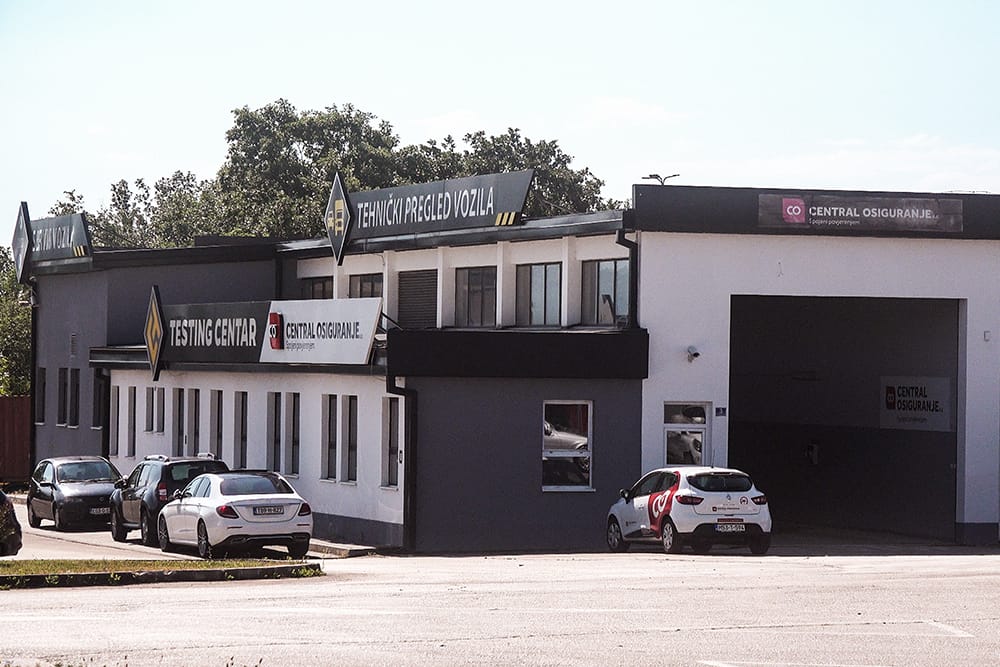
In the run-up to adopting the Rulebook, the FBiH Ministry announced that the document will also be used to create a database on exhaust gas emissions and the quality of the vehicle fleet in the FBiH.
“We know the exact number of vehicles that are not roadworthy, we know how much that percentage has decreased”, says Minister Lasić.
“When we have a situation in the wintertime, primarily in Sarajevo and cities that are prone to higher emissions of pollution, the cantonal Ministry of the Interior can easily act and order that vehicle class 1, 2, 3… be excluded. We are directing the funds in a way to make them purposeful, that is, for the measures to be implemented on the ground properly”, explains Minister Lasić.
Lasić did not specify what measures he was referring to but he claims that the money from ECO test charges has significantly improved the work of the Environmental Protection Fund. The Fund says otherwise: “We underline that the Environmental Protection Fund has never used the funds of the FBiH Ministry of Transport and Communications collected under this Rulebook.”
According to the data collected by CIN, the budgets of FBiH and the budgets of ten cantons annually receive an average of BAM 350 thousand from ECO test charges. The remaining BAM 18.5 million is being divided among the three professional institutions and vehicle inspection centers based on the number of ECO tests performed.
Audit Office for the Institutions of FBiH has repeatedly warned that the amount of annual funds belonging to professional institutions in FBiH significantly exceeds the annual budget of the FBiH Ministry of Transport and Communications.
“We believe that it would be far more rational and efficient for the work of professional institutions to be performed by the Ministry, considering that it could be fully financed solely from the funds collected on this basis”, said the auditors, but the Ministry replied that such a task would require a new organizational unit with about 20 additional employees and equipment, which they do not have.
FBiH institutions do not know what the money from ECO tests is spent on, and Minister Lasić says: “The price of the ECO test is not an issue at all – if it needs to be reduced or even canceled – because we ain’t got none of it.”
Manipulations in the centers
Although the control of exhaust gases was stipulated back in 2007, many of the 440 vehicle inspection centers in BiH have procured the equipment for a more detailed ECO testing only in 2017.
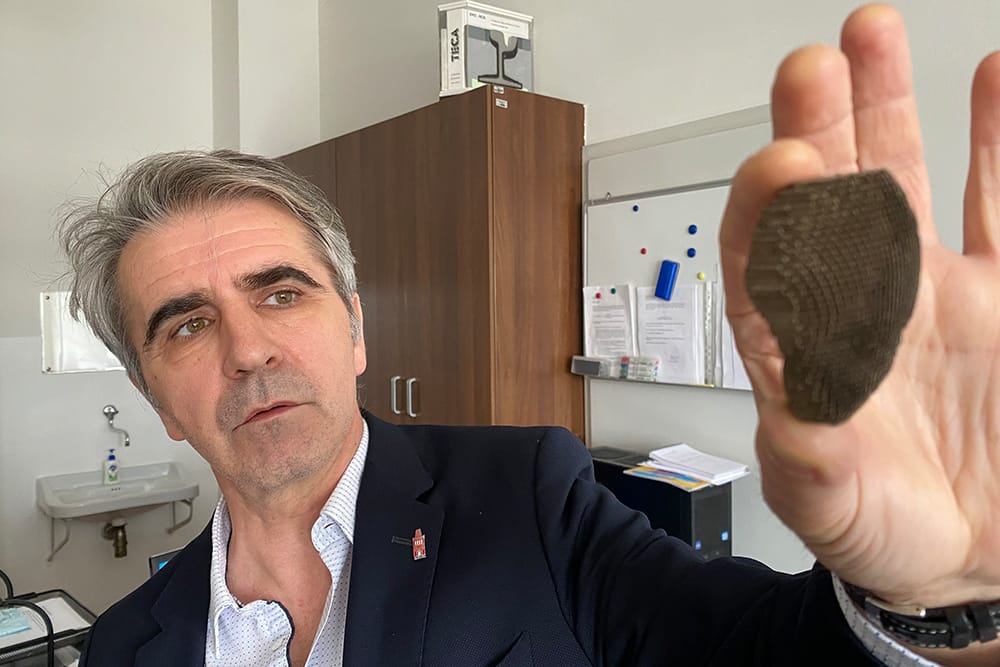
Professor Dževad Bibić from the Faculty of Mechanical Engineering in Sarajevo, who has a 3.5 percent stake in the company Mervik, explains that the testing of exhaust gases is done by repeatedly pressing the accelerator in a specific time period to a specific number of revolutions. In the case of diesel engines, the degree of blackening is examined, while in the case of petrol engines, the concentration of at least four types of exhaust gases is measured: oxygen, carbon dioxide, hydrocarbons, and carbon monoxide.
“It is a good indicator that some of the systems are not working properly, primarily the fuel supply system for older diesel engines, which also affects the economy of the vehicle itself, i.e., fuel consumption”, said Bibić.
However, the possibility of manipulating the devices for the ECO test provides the centers with the opportunity for quick and fictitious inspections that bring easy profit, and exclude a detailed analysis of the exhaust systems of motor vehicles.
“Since they are charging me BAM 100, I asked them to at least tell me if something was malfunctioning in my car. But they said nothing. They do all the work just for show and quickly, in five minutes, they take your money and nobody knows where it ends”, says Nasir Haseljić from Sarajevo. In 2018, he reported Lasić for abusing his position during the adoption of the Rulebook on the ECO test, but the investigation never took place because the Sarajevo Canton Prosecutor’s Office concluded that it was not a criminal offense but a matter of reviewing the lawfulness of an act, which is the competence of legislative bodies and ministries in BiH and the FBiH.
“It turns out that the lower-level of government has greater authority than the one that actually passed the Rulebook. I was upset, as was anyone else. Why should I pay for something I don’t have to?”, says Haseljić.
Yet, in as many as seven cantons, including Sarajevo, Herzegovina-Neretva, West Herzegovina, and Canton 10, whose work is supervised by the company Centar motor, inspectors have not made a single visit to vehicle inspection centers in four years.
“We have not been aware of any inaction. We do not have official information or a report on cantons whose inspectors conduct inspection supervision over the work of vehicle inspection centers. To be able to react, we need to have an official report”, says Tomislav Mikulić, chief traffic inspector of the FBiH.
In the past four years, this inspectorate had an average of 25 inspections per year, while in 2020 it did not inspect any of the 181 centers. That year, only 56 out of about 700 thousand inspected vehicles in the FBiH, with an average age of 17, failed a roadworthy test.
BiH is one of the countries with the oldest vehicle fleet in Europe and the cities with the most polluted air in the world. At the same time, institutions are recording an increase in the number of people suffering from lung diseases due to polluted air.


